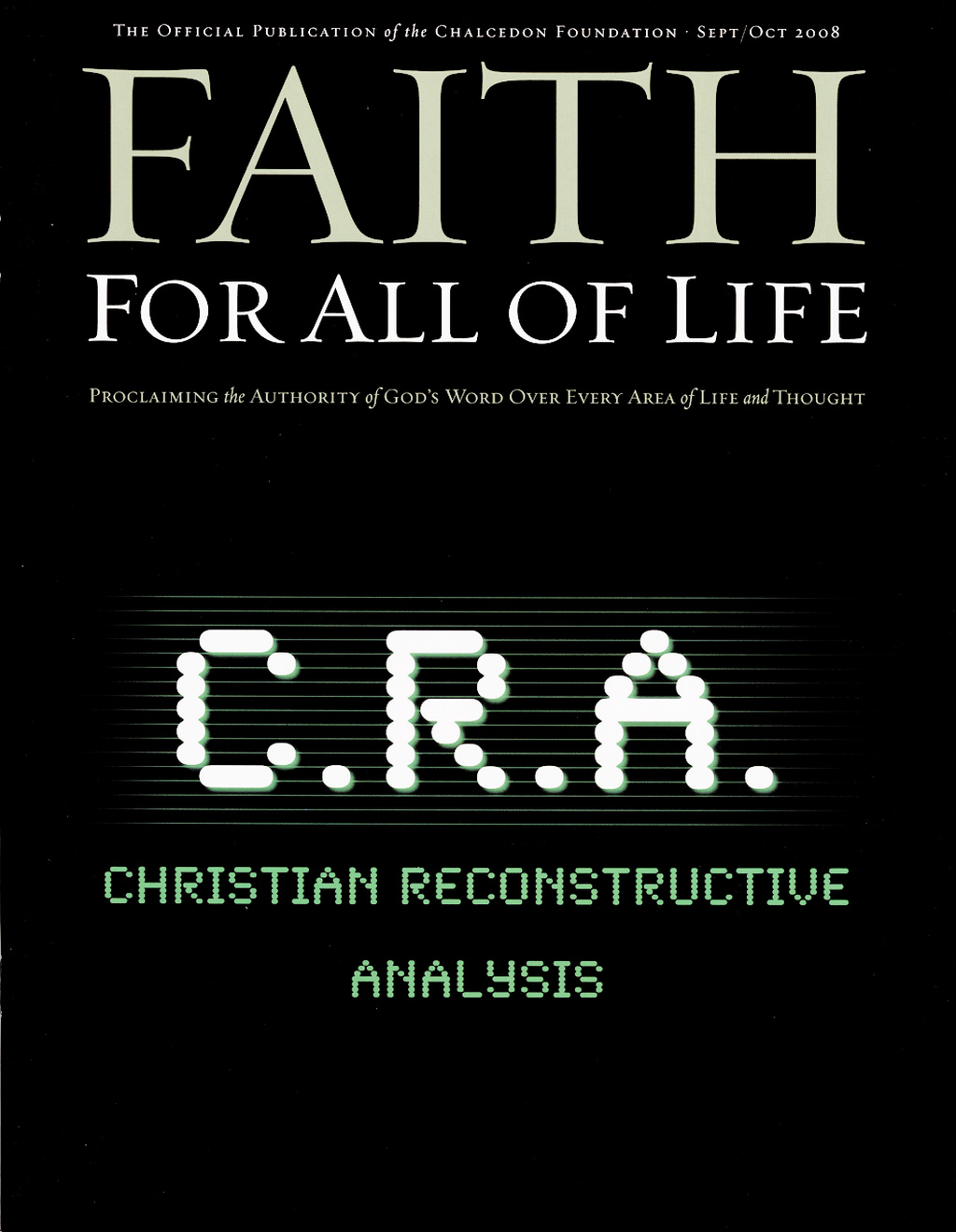
Magazine Issue
C.R.A. Christian Reconstructive Analysis
No one in the twentieth century wrote like Dr. R. J. Rushdoony. No one was more original, more insightful or as far-reaching in his analysis.
September/October 2008 Articles:
Taxation

- R. J. Rushdoony
God’s Salvation and Our Worldview

- Mark R. Rushdoony
God’s Story for Christian Dominion: The Ancient Secret of the Wheat and the Tares
- Christopher J. Ortiz
“What Law Shall Go Forth?” Christian Lawyers as Activists
- Jerri Lynn Ward
Taking Homeschool to the Next Level: Equipping Parents for Kingdom Advancement

- Andrea G. Schwartz
C.R.A. Christian Reconstructive Analysis
- Eugene C. Newman
The Problem That Chalcedon Poses

- Martin G. Selbrede